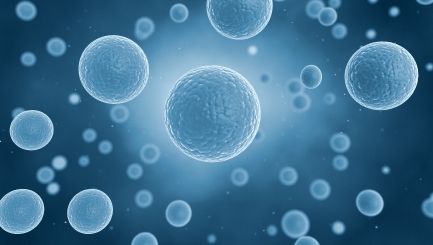Faulty Cells Play a Part in Developing Rheumatoid Arthritis
 A mutation in a molecular cell pathway has been identified as a factor in developing rheumatoid arthritis (RA). The Notch is an intracellular molecular pathway already linked to diseases such as cancer and Alzheimer’s. A new study now links the Notch with rheumatoid arthritis, the autoimmune disease that causes inflammation of the joints and is a painful and often debilitating condition for sufferers.
A mutation in a molecular cell pathway has been identified as a factor in developing rheumatoid arthritis (RA). The Notch is an intracellular molecular pathway already linked to diseases such as cancer and Alzheimer’s. A new study now links the Notch with rheumatoid arthritis, the autoimmune disease that causes inflammation of the joints and is a painful and often debilitating condition for sufferers.
Research has revealed the genes linked to RA includes a particular mutation of a gene in the Notch pathway and a team led by the Hospital for Special Surgery, in New York, set out to uncover exactly how it affected the development of the condition. Their findings were published in the journal Natural Immunology.
A series of experiments was carried out to discover what influence, if any, the Notch pathway had on white blood cells known as macrophages. Misfiring macrophages are known to be involved in cases of acute and chronic rheumatoid arthritis where the macrophages attack the tissue around the joints, causing inflammation.
The tests revealed that the presence of the Notch pathway is needed for the inflammatory macrophages to work while the macrophages themselves are essential for RA to develop. It also explains for the first time the Notch pathway’s involvement in the pathogenesis of rheumatoid arthritis.
One experiment also demonstrated the potential of the involvement of the Notch pathway to unlock potential new treatments for RA. The research team used an inhibitor of the Notch pathway currently under development and demonstrated its ability to hinder the functioning of the macrophages. The inhibitor, known as GSI-34, is one of several being developed for use in the treatment of cancer and Alzheimer’s disease, with trials for these drugs being well under way.
There is no known cure for rheumatoid arthritis, which is the second most common form of the condition in the UK and affects around 450,000 people. Women are three times more likely to contract the condition than men.


Comments are closed.